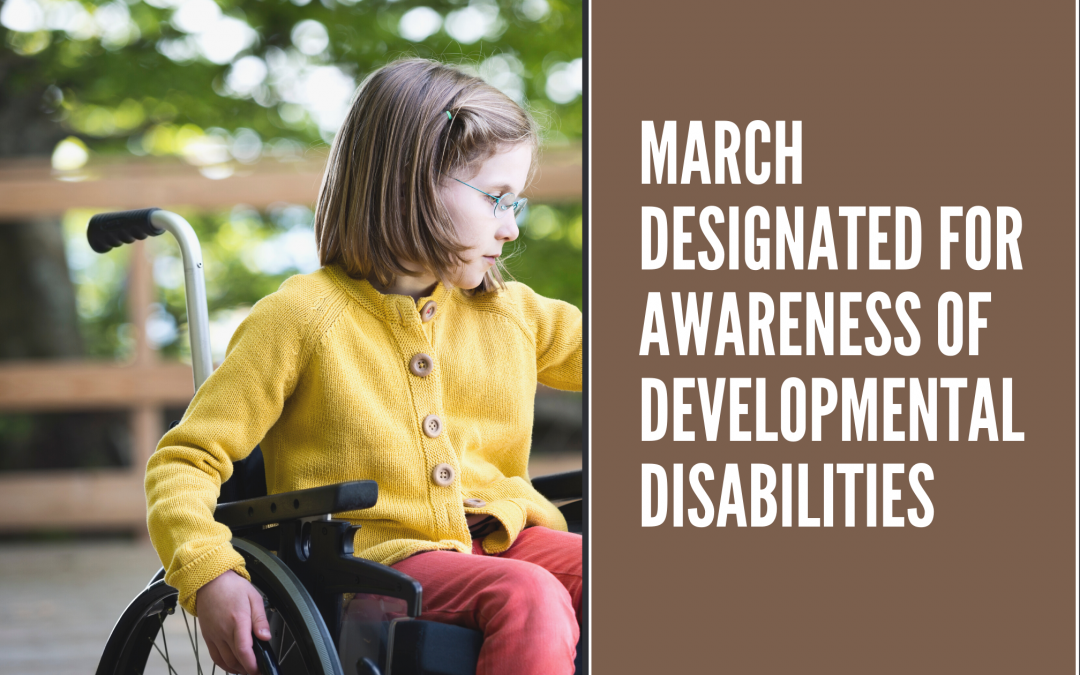It is a condition too easy to see before some people reach the age of 22 and it will continue after that: developmental disability. As of 2017, it is on record as affecting about 1 in 6 children annually. March is recognized as National Developmental Disabilities Awareness Month to educate the public about the challenges and triumphs facing these individuals with intellectual and developmental disabilities (I/DD).
The phrase “developmental disability” refers to a severe, chronic disability brought on by a mental/cognitive or physical impairment (or combination of mental and physical impairments) diagnosed before a person turns 22. The condition is likely to continue indefinitely and limits the individual in 3 or more of the following areas:
- Self-care
- Receptive and expressive language
- Learning
- Mobility
- Self-direction
- Capacity for independent living
- Economic self-sufficiency
According to the North Carolina Council of Developmental Disabilities:
“The conditions create the individual’s need for a combination of special, interdisciplinary services, individualized supports, and other forms of long-term assistance that are individually planned and coordinated.
Infants and young children who have a substantial developmental delay or specific condition may be considered to have a developmental disability without meeting 3 or more of the criteria if there is a high probability of meeting those criteria later in life.”
But, let’s make this clear. There is no need to be” worried” if a friend or a family member has a developmental disability. He or she can usually live a normal life as long as there are proper supports in place. Treatments include physical, speech, and occupational therapy. Special education classes and psychological counseling can also help.
Despite the limitations of COVID, there are many opportunities for individuals and communities to work with someone who has an I/DD and, in the process, help raise awareness. For example, dealing with the new normal of COVID life.
Developmental Disabilities and COVID
The Healthy Kids website has a great article, “How can I help my child, who has a developmental disability, cope during COVID-19?” It is written by Jennifer Poon, MD, FAAP. She is a Developmental-Behavioral Pediatrician and an Associate Professor of Pediatrics at the Medical University of South Carolina in Charleston.
She says some simple things can be done to help your child understand and adjust to changes in daily routines. Like dealing with no school, or wearing face coverings, or keeping social distances. Here are two of her several suggestions.
- Monitor your child’s feelings. Increased restlessness, tantrums, or sleeping or eating poorly may be signs of stress or worry. Give your child extra hugs and positive words to show you understand how they feel.
- Spend some time outside each day. This helps your child get exercise. And regular exercise helps to keep a regular sleep schedule, which can be a challenge for children with developmental disorders. Adequate sleep helps support a child’s physical and emotional health.
Dr. Poon also advises that parents request from the U.S. Centers for Disease Control and Prevention examples of visual schedules with drawings families may find helpful.
For more information on dealing with developmental disabilities go to the website of the North Carolina Council of Developmental Disabilities.
This post was written by Anthony M Scialis. Find him here.

